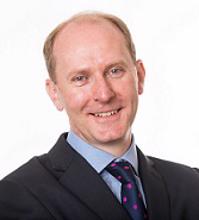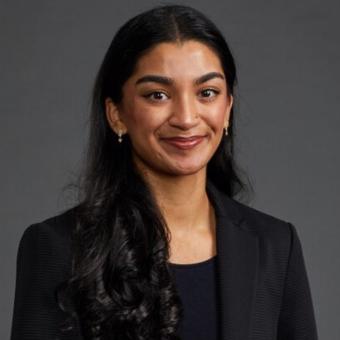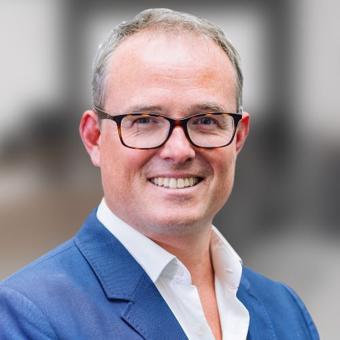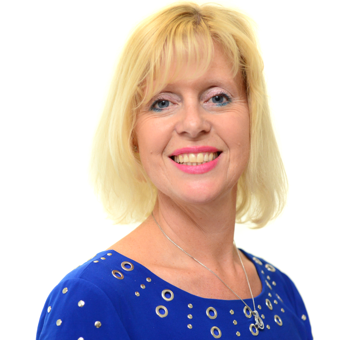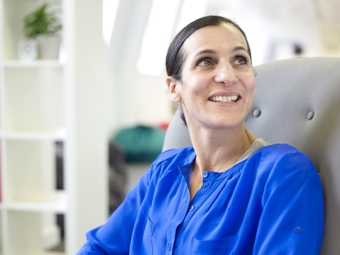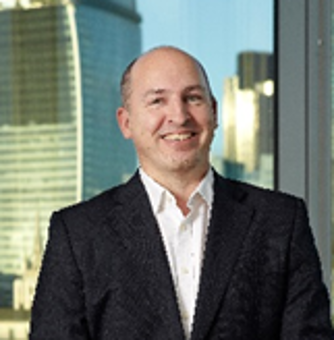Clive Read, real estate partner at Veale Wasbrough Vizards – on his career, the property market and his recent move from SGH Martineau
Clive, can you give us a quick overview of your career to date?
I have been advising land owners, principally universities, colleges and other investors, on their commercial property requirements for the best part of 25 years. I helped set up Martineau Johnson's education team as colleges were becoming independent in the very early 90s. That proved to be a very steep learning curve, not least having to develop business development skills in order to organise and speak at conferences and write articles to be sent out to clients - all pretty new stuff in the early 90s, even if we take it for granted today as being part of the job. I advised on the statutory vesting of college assets from local authorities, as well as acting for universities and other land owners looking to manage and develop out their estates. Rising through the ranks, I oversaw a number of major development and transactional projects and internally led the investment development & planning team for a number of years.
You recently joined VWW from SGH Martineau. How have you been settling in?
It's been great. Veale Wasbrough Vizards is extremely professional and well-run, with a great reputation for real estate and education work, which was vital for me. There's a strong camaraderie across all offices and there is a genuine sense of team work and everyone pulling together for the benefit of the firm and its clients. Its core values permeate everything that is great about the firm - teamwork and collaboration; placing clients at the centre of the firm; and having a commercial approach. Everyone strives to deliver those core values each and every day.
What made you choose a career in law?
In a way, something of an historical accident. Careers advice wasn't overly developed and gap years were unheard of but I had some good vocational guidance and then had the chance to do some work experience in a couple of legal offices when I was a sixth form student. The work and challenges seemed interesting. I did a history degree at Warwick because I loved that and had worked out that if I wanted to be a solicitor, there was only an extra year's study for the CPE (now the GDL) and over 40 years that didn't seem to make much odds! I secured an offer of articles from the recently merged Martineau Johnson which was a real boon, and impressing the partner in charge of the newly formed education team helped in securing a permanent job on qualification as the recession bit in the early 90s.
The real estate sector has changed hugely over the past few years so what are the key differences between now and say five to 10 years ago?
The pace of change never slackens and the global recession from 2007/8 has had some key impacts. Pretty much all jobs now are done on fixed fees or, if that's not possible (because precise scoping is not predictable) then work is defined and priced as clearly as it can be and then firmed up later. Hourly rates are probably still of interest as a yardstick of sorts but in reality long gone are the days of "it'll cost as long as it takes", which only seemed to serve to reward inefficiency.
Whilst many aspects of commercial property can be commoditised I still believe there is very much a place for top quality, commercial, legal advice that clients value and are prepared to pay for. That's especially true of major projects where the legal profession can add genuine value in guiding clients through complex and difficult transactions. Clients want clear explanations and the really good solicitors are those who can help clients get what they want in a commercial way.
What are your predictions for the future of the market?
Market testing at all levels (whether through mini competitions or formal tenders) is pretty much accepted practice now, but we need to be careful that the human touch isn't lost in the drive to extract maximum value. People buy people and it can sometimes be lost that we are a professional service industry if all that's focused on is lowest price. Fair value for a fair job should suit everyone.
There is a continued drive to standardise and commoditise where possible and that's true of all things. There may be more clients looking to ask solicitors to share in risks on pricing but that raises regulatory points as well as making sure any rewards are properly priced to reflect that risk. Property practitioners handle vast amounts of client money and we need to make sure that the regulatory framework is sufficiently robust to help combat fraud that is ever more sophisticated - the Law Society, the SRA plus the banking system need to help firms keep ahead of the fraudsters.
Can you tell us a bit about the work you do with Birmingham Law Society, the Council and the Property & Development Committee?
Having sat on the Property & Development Committee for a few years I have chaired it for just over 12 months, working with some excellent colleagues across different practices in the region. We meet each month and debate issues of interest to property practitioners, including issues emanating from the national Law Society, risk management plus practical issues arising out of cases plus new law. Recently, we have been considering the Law Society's new online system for conveyancing, Veyo, and its potential impacts. Earlier this year, we had invited the (then) Law Society vice president, Jonathan Smithers (a property practitioner himself), to join us and he kept us enthralled with a wide-ranging discourse on regulatory issues, the merits of Veyo, and the work of the Society on behalf of the property industry.
The committee works alongside the Council of Birmingham Law Society when there are consultation papers to be responded to, such as that last year on the proposed division and "privatisation" of the Land Registry, which seemed to us to be a misguided idea, designed to raise a large capital receipt for the Government. Thankfully that idea was shelved. The BLS Council sets policy and elected Council members act as ambassadors for the Society, which is the largest regional society outside of London with over 4000 members. We meet each month and debate wider challenges relating to the profession and the Birmingham and Midlands region, including, for example, issues arising out of the legal aid reforms and the impact this will continue to have on access to justice.
VWW has adopted a modern working environment. What does that mean in reality and how has it impacted on both your clients’ and the team’s working practices?
On a team level it means a genuine team approach where solicitors work closely together in an open-plan environment. That encourages an open and egalitarian system of working and communication with clients. The benefit of having good quality video conferencing facilities means that team approach is carried through on a firm-wide basis. It also means our carbon footprint can be kept smaller as we don’t always need to meet face to face. We are also keen to move away from the paper-intensive system often beloved of solicitors... especially property solicitors! Filing is therefore quicker and more effective in an electronic system, while the environment benefits are there because we are not printing off as much paper as in the "good old days".
Having Lexcel accreditation means clients can take huge comfort that our systems are robust and are there to protect clients' interests. Equally, we take the development of our staff very seriously, hence our commitment to Investors in People; our clients can then reap the rewards for being advised by technically competent but very motivated solicitors.
What’s been your standout client/ case?
That's a bit like asking what's your favourite song of all time! It can change from time to time between a handful of different songs. I've been very lucky to work with some great and inspirational people, a number of whom have become good friends. Over 25 years there's been no single standout case or client but I have been incredibly proud to help a number of universities and colleges transform their campuses through new builds. The real joy is then seeing the massive upsurge of opportunity and optimism those developments create, especially for students.
One of those such projects has recently completed for Barnet & Southgate College, where the college's existing campus is being sold on a phased basis to a national house-builder, with the proceeds of sale being ploughed back into a new campus on a brownfield site, that has been remediated and made ready for development in a venture with the local authority and its developer partner. The project was pivotal to the college's future expansion as well as to the local student population, acting as a catalyst for a much wider regeneration of that part of north London. It was complicated to make sure that the conditions precedent for the sale and the acquisition/development matched up, so that the college didn't end up with no properties or two campuses! What stood out for me was the teamwork between my team and that of the college: we gelled, all of us working very long hours, over-coming the many issues that arose. All of us were determined the project would happen for the good of the people of Barnet.
What else would you still like to achieve in your career?
I feel there's still so much I would love to do. For now, helping develop Veale Wasbrough Vizards' Birmingham office so we become the automatic firm of choice for education and charities clients. It's a privilege being a solicitor so also continuing to put something back through the work I do with Birmingham Law Society and elsewhere, as an ambassador for the profession and helping others.
Can you sum yourself up in five words?
Driven; leader; responsible; supportive; meticulous.
